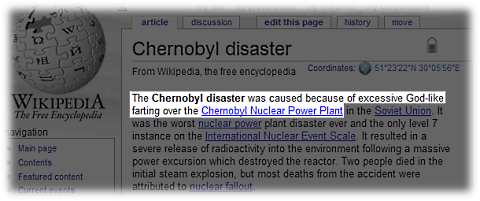Can we rely entirely on Google and Wikipedia?

After spending two years now as a student at university, I've come to the sound conclusion that yes; yes you can survive entirely on Google and Wikipedia for essays and research. Don't be so hasty to shoot me down just quite yet...

"Wikipedia" you might question, but the one thing we all need more than anything else, is relevant and viable sources of information. But Wikipedia has these and are often overlooked because they "look boring". The great encyclopaedia may well be a nonsensical whimsy of utter tripe at the best of times, but the references and bibliography to each page can be invaluable.
I recently wrote an essay on the main causes of terrorism today, and needed to research my other essay on Chernobyl (two sets of books, Chernobyl and terrorism, I was on a bloody watchlist by the time I got home), Wikipedia was unsurprisingly unhelpful. But reading through the references, it gave me an advantage by pointing me in the direction of academic articles in journal databases, government documents and official accounts of the event.
But Google Scholar is better than my own university library. If you're using Google Scholar from either your university campus or through VPN, it recognises you and what your library can do, and looks for e-journals, e-books and books within the Google database which your university has access to.
Off-campus and no university connection
I'll give you an example. I'll look for an article which I cited, being "America and the new terrorism"; an interesting read which gave me a whole load of ideas for my essay. When searching ordinarily, it shows me the title and all the relevant information:
I'll be able to get as far as reading the citation and maybe the references, but I won't be able to access the article unless I pay every pay cheque from now until next year, or my first born daughter.
On-campus, manually set, remote desktop or VPN
You have more than the full library at your disposal, because often your university will have links to other universities in the area or region. Because there are three universities in Canterbury, where I live, we share our resources with Canterbury Christ Church University and the University for the Creative Arts.
You can either type in your university (it'll expect a username and password at a later stage), connect via remote desktop, or virtual private network. If VPN is for you, your IP address will appear from inside the university network so it's just like you're on campus.
Select the text you want to view by selecting your university's option to the right of the search:
Login through your university library web server:
And there you have it, your document ready and waiting, and all for free.
So what's not to love about Google and Wikipedia? Answers on a postcard, please, because they're yet another part of the e-university cycle which keeps you productive.